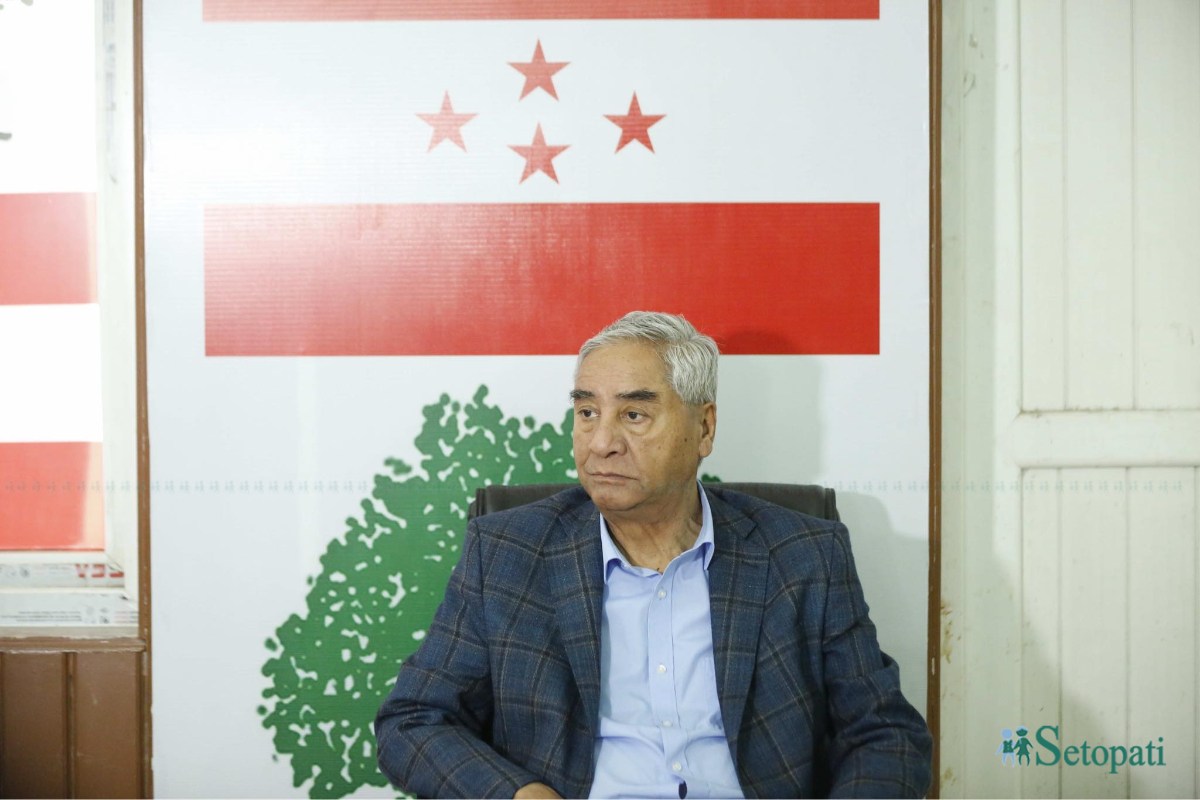Nepali Congress (NC) has decided that it will again hold discussion about conduct of Deputy Speaker Indira Rana Magar in the ruling coalition and then take necessary decision.
The meeting of NC office-bearers and former office-bearers held at the residence of NC President Sher Bahadur Deuba in Budhanilkantha on Wednesday has pointed that the coalition partners should take common position on the issue and decided that the parliamentary party meeting to be held after another meeting of ruling coalition will take a call on that.
Deputy Speaker Rana Magar was recently mired in a controversy over a letter she had written to the United States Embassy in Kathmandu to schedule visa interviews for six people including herself.
CPN (Maoist Center) and Rastriya Swatantra Party (RSP), the party that got Rana Magar elected to the House of Representatives (HoR), strongly opposed when CPN-UML lawmakers raised the issue in the House on Tuesday and demanded her resignation.
Chief Whip of the grand old party Shyam Ghimire briefed the decision of Tuesday's meeting but did not divulge when the next meeting of ruling coalition and the NC parliamentary party meeting will be held. "The meeting of ruling coalition will be held formally and informally. NC and UML alone cannot muster two-third majority. The ruling parties, therefore, will move forward forging common position. Deputy speaker will not be removed today or tomorrow itself. What we wish is that it would be appropriate for her to exit and pave the way before the process starts," Ghimire elaborated.
Prime Minister KP Sharma Oli proposed to submit a resolution against Deputy Speaker Rana Magar during a meeting attended by top leaders of the ruling parties at Baluwatar Monday afternoon.
All the parties in the ruling coalition agreed to the proposal, which PM Oli put forward citing the need for the Constitutional Council's decisions to be 'comfortable'.
PM Oli and NC President Deuba discussed the matter on Sunday as well. They also discussed filling vacant positions in constitutional bodies. Deuba said during Sunday's meeting that there was not a single member from NC in the Constitutional Council.
According to the current provisions, decisions of the Constitutional Council are taken by 50 percent of its members. The Constitutional Council is chaired by the prime minister and includes the chief justice (CJ), HoR speaker and deputy speaker, National Assembly chairperson and leader of the opposition as members.
Among the members, leader of the main opposition party Pushpa Kamal Dahal, National Assembly Chairman Narayan Dahal, and Deputy Speaker Rana Magar are from the opposition. PM Oli proposed removing the deputy speaker saying it would be difficult to take decisions as both sides would have 50 percent members each even if the CJ were to support the position of PM Oli and HoR Speaker Dev Raj Ghimire who was elected to the House on an UML ticket.
"Questions have also been raised about the conduct of the deputy speaker. It will also be easier for us to take decisions. Let's register an impeachment motion. It’s my responsibility to get it passed by a two-thirds majority," said a source, referring to PM Oli's proposal.
According to sub-article 6 (c) of Article 91 of the Constitution, the position of speaker or deputy speaker of the HoR shall fall vacant if a resolution is adopted by a majority of two-thirds of the total number of the then members of the HoR that his or her conduct is not compatible with his or her office.
One-fourth of the members of the HoR can file a motion to that regard.
Deputy Speaker Rana Magar was recently in controversy over a letter she had written to the United States Embassy in Kathmandu to schedule visa interviews for six people including herself.
On February 26, 2023, Deputy Speaker Rana had written to the embassy to arrange dates for visa interviews saying she and five others were going to the US to participate in the NGO CSW67 event held in New York.
She had mentioned in the letter that the event was important for everyone including herself and that she had given top priority to the invitation from the United Nations.

